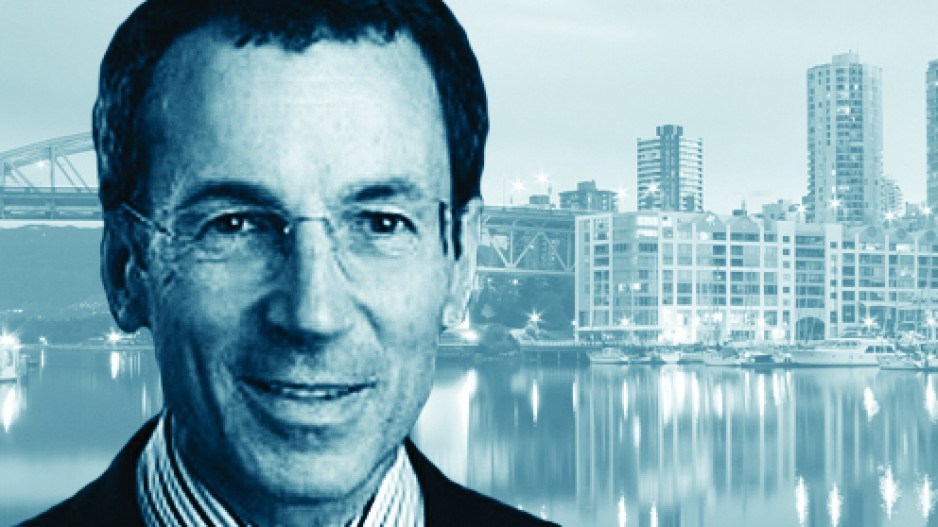You didn’t have to spend long at Globe 2016 to get the message: global politicians, investors and businesses are headed inexorably toward a low-carbon future. Then came two shocking announcements: Canadian Pacific Railway CEO Hunter Harrison saying publicly that fossil fuels are “probably dead,” and the U.K.’s biggest energy lobbying group, Energy UK, long a defender of fossil fuels, campaigning for low-carbon alternatives for the first time.
Meanwhile, back out on our streets, in spite of green plans raining down on us from virtually every municipality, we are still backing up at high speed into an expensive car-dependent future based on a 20th-century paradigm of high-carbon suburban sprawl, megamalls, long commutes, bad air, traffic deaths and injuries and obese kids. Oh, and coal exports.
But what if cars became cleaner, and – operating without human drivers – safer, shared and fewer? How good would that be?
A recent conference on the future of urban technologies, sponsored by Intelligent Transportation Systems Canada, alerted us to a wonderland of convenience, service and mobility already being adopted in some cities in Europe. The holy grail, already being tested, is a single app that aggregates every possible transportation option for any trip, helping anyone order up the simplest, most convenient and cheapest choice. Helsinki’s goal is that no one will have to own a car by 2025. They’ll be eager to give up owning a car – typically used about 4% of the time – because other options will be more attractive.
Finding this off-ramp means getting the rules right so taxis, Uber-type services, transit, car sharing and peer-to-peer ride sharing are all regulated for maximum efficiency, affordability and fairness. That was the call recently put forward by the Greater Vancouver Board of Trade to rewrite the Passenger Transportation Act. The goal should be to keep any one provider (such as Uber, TransLink or taxis) from having an unfair advantage that puts us all in their grip, instead allowing seamless but competitive “interoperability” between old and new mobility options. Imagine a monthly package offering unlimited travel by bus, SkyTrain, taxi, car share, Uber-type services, bike share, whatever, for $150 per month: one payment, one bill.
But unfortunately this doesn’t work in a car-dependent region. Without adequate transit and 21st-century regulatory oversight, the pending arrival of driverless cars will keep us in the hands of the same car-makers who got us into this situation in the first place.
Sampo Hietanen, CEO of Finland-based MaaS (Mobility as a Service) Ltd., warns us that when (not if) driverless cars start populating our streets, if we don’t have adequate public transit, we could end up with many more cars on the road: congestion like we’ve never seen it before. Morgan Stanley is predicting 100% autonomous vehicle penetration by 2035.
Minister Responsible for TransLink Peter Fassbender, when asked at the conference why transit has to go to a referendum for funding when no other mode of travel does, lamely said it’s because it was an election promise, it happens in other jurisdictions and people don’t have confidence in TransLink.
By default that means the B.C. government has its foot on the gas for cars, trucks, freighters and bridges, while fiscally conservative transportation infrastructure starts with walking, biking and transit.
The arrival of transportation into the digital age of driverless cars, where mobility is a multi-pronged service with many new options, has the potential to make our lives simpler, freer and more affordable. It could even make road pricing fair and simple.
But urban planning consultant Brent Toderian warns us that these “new shiny conversations” about driverless cars are often excuses for bypassing difficult conversations about the political will to build better cities, not just better cars.
As things stand now, we’re stalled and tracking for a no-win high-carbon future, even though it may be filled with shiny, safe, shared driverless cars and cool apps.•
Peter Ladner ([email protected]) is a co-founder of Business in Vancouver.




